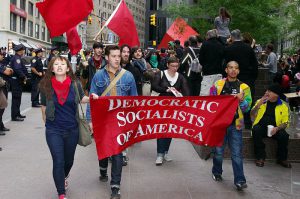


One of the abiding joys of working at a think tank like the Acton Institute is that interesting people are always asking you big questions. I was recently asked, “Why should Christians support free markets?” The question is large, interesting, and necessitates the answering of a more basic question first, “Why should Christians be interested in economics?”
Adam Smith, and his many antecedents, began crafting the analytical tools which we e to call economics in response to phenomena which they saw in their world. You can see this in the title of Smith’s most famous work, An Inquiry into the Nature and Causes of the Wealth of Nations. Talk of inquiry, nature, and cause is philosophical talk and Adam Smith himself was a moral philosopher even before he was an economist. Adam Smith called economics ‘political economy’ and in so doing he linked it to the earlier disciples of practical knowledge, knowledge for the sake of operation and conduct, knowledge like ethics and politics.
Years later Archbishop Richard Whately, himself an economist and theologian, came to see this label as unnecessarily confusing,
A. Smith, indeed, has designated his work a treatise on the “Wealth of Nations;” but this supplies a name only for the subject-matter, not for the science itself. The name I should have preferred as the most descriptive, and on the whole least objectionable, is that of Catallactics, or the “Science of Exchanges.”
After all Smith began his inquiry looking at examples of specialization and trade within the world and only then looked to questions of how this knowledge could be applied in the realm of politics. For Whatley, and many modern economists, economic science itself was a form of speculative knowledge, knowledge for its own sake, like natural philosophy or psychology. This kind of knowledge is the kind of knowledge that helps us understand our world and ourselves. Speculative knowledge of the world and ourselves, practical knowledge informing our conduct, as well as technical knowledge of the arts and crafts are necessary for Christians to carry out mand to,
Be fruitful and multiply and fill the earth and subdue it, and have dominion over the fish of the sea and over the birds of the heavens and over every living thing that moves on the earth. (Genesis 1:28)
Knowledge of economics, the science of exchanges, is knowledge of God’s creation. Particularly it is knowledge about the nature of people and how they act using scarce means to realize desired ends. This basic knowledge of the logic of choice gives us a meaningful account of the causes and effects of exchange and how it shapes our world.
The account economics gives of both our actions and those of others in our world should inform our conduct:
For which of you, desiring to build a tower, does notfirst sit down and count the cost, whether he has enough plete it?Otherwise, when he has laid a foundation and is not able to finish, all who see it begin to mock him,saying, ‘This man began to build and was not able to finish.’Or what king, going out to encounter another king in war, will notsit down first and deliberate whether he is able with ten thousand to meet him es against him with twenty thousand?And if not, while the other is yet a great way off, he sends a delegation and asks for terms of peace. (Luke 14:28-32)
The speculative knowledge of economics should thus guide our practical actions in ethics and politics. To realize our ends (Building a tower or attaining victory) we must consider our means (Count the cost), in other words we must perform an economic analysis. Our means (costs), in order to meaningfully inform our action, must be evaluated according to alternative uses, both our own and our neighbors. Our means of meaningfully calculating such a cost are prices which can only emerge in a free market. As the German economist Wilhelm Röpke explained:
Only a market economy makes it possible for economic science to go beyond those general and platitudinous truths and to discover relationships that have the objective definitiveness and validity which a market economy actually establishes by means of the mechanism of price. Only a market economy makes of economic science an analytical social science rather than a science which is merely a descriptive-understanding one having a logical structure like that of historiography.
To return to our original question, “Why should Christians support free markets?”, the answer is that only in free markets can prices emerge which account for the alternative uses of our scarce means to realize our and our neighbors ends. This allows us to account for the individual goods which make up mon good. The institutional framework that a free market provides coordinates human and natural resources to the satisfaction of needs by encouraging both alertness to opportunities for service to others (entrepreneurship) as well has wise stewardship of our own resources.









